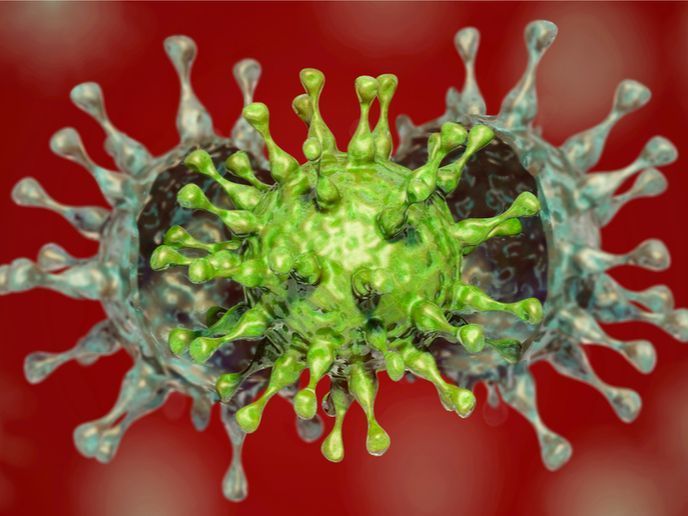An EU-backed study has shown that when the SARS-CoV-2 virus mutates, it can prevent killer T cells from recognising infected cells and eliminating them.
In the ongoing battle against the SARS-CoV-2 virus, antibodies play a vital role in fighting off infection. However, they don’t work alone. Another protagonist is the killer T cell that finds and destroys cells that are infected with the virus. A new study supported by the EU-funded EpigenomeProgramming and CMIL projects has now shown that when SARS-CoV-2 mutates, it can make itself unrecognisable to these killer T cells. The study has been published in the journal ‘Science Immunology’.
To find out whether SARS-CoV-2 mutations can evade the immune response of killer T cells, researchers from Austria, Russia and Switzerland deep sequenced 747 viral genomes from COVID-19 patients. They then investigated whether mutations of the virus have the ability to alter T cell epitopes – i.e. the parts that the killer T cell recognises and which can trigger the immune response. “Our results show that many mutations in SARS-CoV-2 are indeed capable of doing this,” stated co-author Andreas Bergthaler of CeMM Research Center for Molecular Medicine of the Austrian Academy of Sciences in an article posted on the ‘EurekAlert!’ website. “With the help of bioinformatic and biochemical investigations as well as laboratory experiments with blood cells from COVID-19 patients, we were able to show that mutated viruses can no longer be recognized by T-killer cells in these regions.”
The role of epitopes and the killer T cell
The killer T cell is a type of lymphocyte, or white blood cell. Also called a CD8+ T cell, this cytotoxic cell is able to recognise and eliminate an infected cell because of the viral protein, or antigen, on its surface. When a virus infects a cell, it begins to make antigens. Some of the peptides made during this process are carried to the cell surface by MHC Class I molecules and presented to T cell receptors. These peptides, or T cell epitopes, signal that a virus has infected the cell, making it possible for the killer T cells to eliminate it.
Implications for future vaccine development
There are usually a number of epitopes that killer T cells can recognise, so that if one epitope mutates, other epitopes can still signal the presence of a virus. Unfortunately, since most of today’s SARS-CoV-2 vaccines target only one of the many virus proteins – the spike protein – this reduces the number of epitopes that killer T cells can recognise. “The spike protein has, on average, one to six of these T cell epitopes in an infected person. If the virus mutates in one of these regions, the risk that the infected cells will not be recognized by the T-killer cells increases,” observed co-author Johannes Huppa of the Medical University of Vienna in the same article.
“[T]his knowledge helps to develop more effective vaccines with the potential to activate as many T-killer cells as possible via a variety of epitopes. The goal are [sic] vaccines that trigger neutralizing antibody and T killer cell responses for the broadest possible protection,” the research team concluded. EpigenomeProgramming (An experimental and bioinformatic toolbox for functional epigenomics and its application to epigenetically making and breaking a cancer cell) and CMIL (Crosstalk of Metabolism and Inflammation) are hosted by the CeMM Research Center for Molecular Medicine of the Austrian Academy of Sciences. Both projects end in 2021.







Leave a Reply